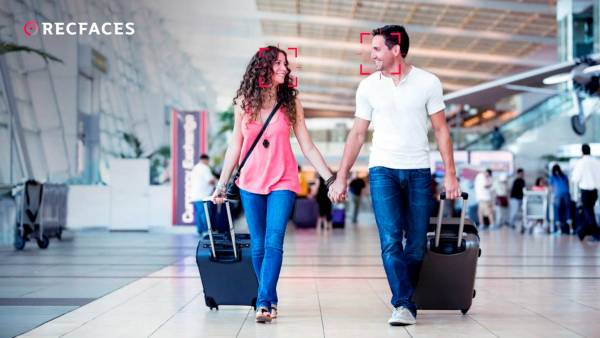 International. From passport photographs to accessing bank accounts with fingerprints, the use of biometrics is growing at an exponential rate. And while using your fingerprint may be easier than typing in a password, how far is too far when it comes to biometric use and what happens to your biometric data once it's collected, especially as far as governments are concerned?
International. From passport photographs to accessing bank accounts with fingerprints, the use of biometrics is growing at an exponential rate. And while using your fingerprint may be easier than typing in a password, how far is too far when it comes to biometric use and what happens to your biometric data once it's collected, especially as far as governments are concerned?
Analyst Comparitech updated its biometric data study to include 96 countries. There they discovered where biometric data is taken, what it is taken for and how it is stored, while also exploring the latest biometric updates amid the ongoing pandemic.
There is a lot of scope for biometric data collection, so they have identified eight key areas that apply to most countries (to offer a fair country-by-country comparison and ensure data is available). Each country has been rated 31, with low scores indicating extensive and invasive use of biometrics and/or surveillance and a high score demonstrating better restrictions and regulations regarding biometric use and surveillance. Then, to see how current biometric use for COVID-19 purposes affects a country's score, they have deducted a point for each area that biometrics has been introduced as an emergency control measure (six areas in total).
While China tops the list perhaps not a big surprise, residents of (and travelers to) other countries may be surprised and concerned about the extent of biometric information being collected about them and what happens to it next (see cover image).
Key results
- Many countries collect travelers' biometric data, often through visas or biometric checks at airports.
- The vast majority of countries studied use biometric data for bank accounts, e.g. E.g. fingerprints to access online application data and/or to confirm identities within the banks themselves
- Although many countries recognize that biometric data is confidential, the increase in biometric use is widely accepted.
- Facial recognition CCTV is being rolled out in a large number of countries or at least being tested
- EU countries scored better overall than non-EU countries due to GDPR regulations that protect the use of biometric data in the workplace (to some extent)
- Many of the top-scoring countries do not necessarily receive their high scores for "best practices," but because they are developing countries that have not moved toward technology-based solutions in certain areas.
The 5 worst countries for the collection and use of biometric data
These countries received the lowest scores overall, meaning they are showing flaws in the privacy of people's biometrics. Through the collection, use and storage of biometric data, these countries use biometrics in a severe and invasive way.
1. China = 2/31
China only managed to score two points: one for the lack of a biometric voting system and another for allowing passport holders from Singapore, Brunei and Japan to enter the country visa-free for up to 15 days. Your score for not having a biometric voting system also comes with a bit of irony, as the voting system is tightly controlled, which perhaps eliminates the need for biometric voting.
2. Costa Rica = 3/31
Costa Rica only receives 3 points as it is just beginning to implement facial recognition within the country and allows a small number of countries to enter without a visa.
Of particular concern are Costa Rica's two new national biometric databases. One will include all Costa Ricans over the age of 12 and the other all foreigners entering the country. Police also have full access and both will help facilitate upcoming facial recognition systems.
Currently, data protection law in Costa Rica does not protect biometric use or recognize biometrics as sensitive data.
3. Iran = 5/31
With the widespread use of facial recognition, which is also linked to a biometric database and accessible by police, Iran's use of biometrics is extensive and invasive. It also lacks adequate protections for the use of biometric data and the collection of biometric data from travelers is also done on a large scale.
4. United States, Saudi Arabia, United Arab Emirates, Bangladesh, Philippines and Uganda = 6/31
The biggest impact in the bottom five is the United States, which ranks as one of the fourth worst countries in terms of collection and use of biometric data. This year, it remains the fourth worst, despite the fact that this time 45 other countries were included in the study.
5. Iraq and Malaysia = 7/31
Both countries have biometric data in their passports, ID cards, and a large biometric database with police access. They also don't have a data protection law that considers the use of ccTV biometrics and facial recognition to be largely implemented in these countries as well.
Top 5 countries to protect biometric data (to some extent)
While no country provides unwavering protection for the biometric data of its citizens, there are some countries that have not introduced invasive biometric collections or that have some safeguards. These are:
1. Turkmenistan = 25/31
While Turkmenistan's appearance at the top of the study may come as a surprise, it is probably due to the lack of development within the country. For example, there is no known biometric database and the use of CCTV with facial recognition is not known. These are two high-scoring areas that help improve Turkmenistan's score. However, we must not allow this to detract from the fact that Turkmenistan, unlike many other countries, has a data protection law that recognises biometric data as sensitive data.
2. Ethiopia = 22/31
Like Turkmenistan, Ethiopia's score comes from its lack of biometric use in many sectors. Facial recognition CCTV is not known to be used and, although a biometric database exists, it is limited to refugees and is not used for law enforcement purposes. However, Ethiopia lacks adequate legislative protection for biometrics, so if the use of biometrics were to increase in the country, it would be necessary to introduce data protection laws to safeguard them.
3. Azerbaijan and Bahrain = 20/31
None of these countries have biometric databases and Azerbaijan is not implementing widespread use of facial recognition CCTV. Both have legislation that safeguards the use of biometrics. However, Azerbaijan requires biometrics for visa applicants and Bahrain continues to implement the widespread use of facial recognition cameras.
4. Portugal and Ireland = 21/31
Both Portugal and Ireland have laws in place to protect biometrics, and Portuguese law also prohibits the implementation of a biometric database. The biometric data of Portuguese citizens can be taken for identification cards, but this biometric data is destroyed immediately afterwards. Only citizens of some countries require visas to enter these counties, but these visas may require biometric data (Portugal is part of the Schengen area, for example).
5. Guatemala, Luxembourg, Paraguay, Poland, Romania, Tunisia and the United Kingdom = 17/31
A large number of countries tie for fifth place. This is mainly due to few (if any) biometric requirements when entering the country, there are no national biometric databases, and there is no extensive use of CCTV with facial recognition. That said, there are areas of concern. These include the increasing use of facial recognition CCTV in Tunisia and the lack of protective legislation in Guatemala, Paraguay and Tunisia.
See the full report at the following link: https://www.comparitech.com/blog/vpn-privacy/biometric-data-study/

























Leave your comment